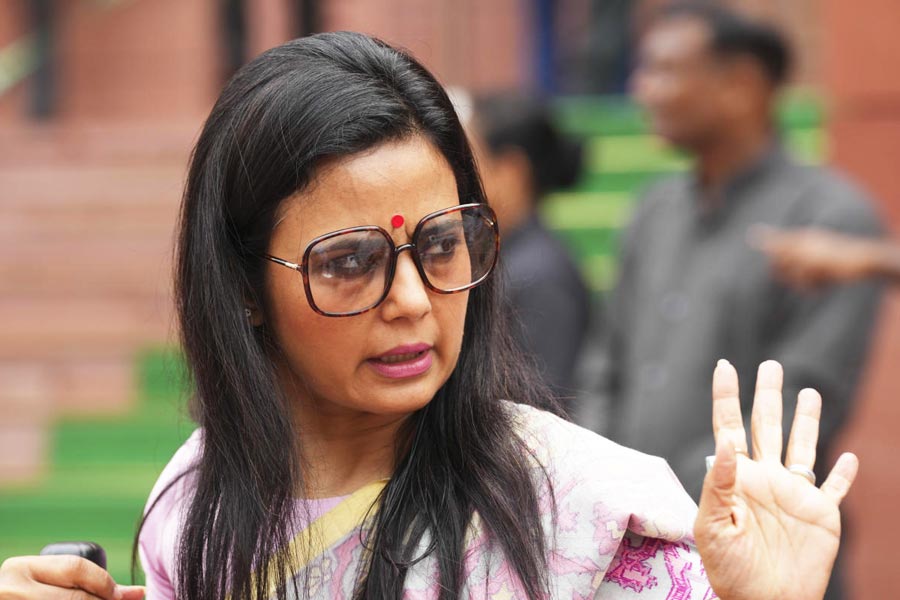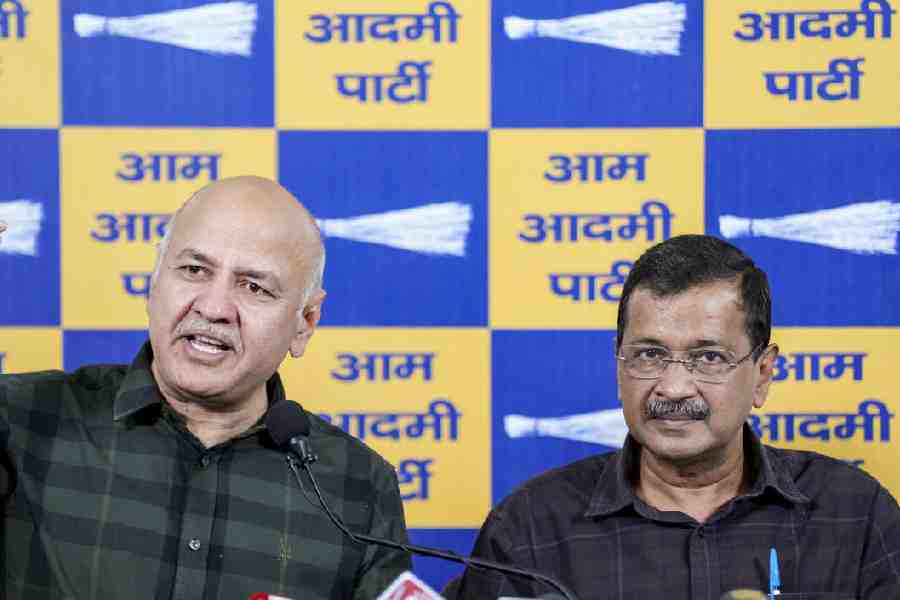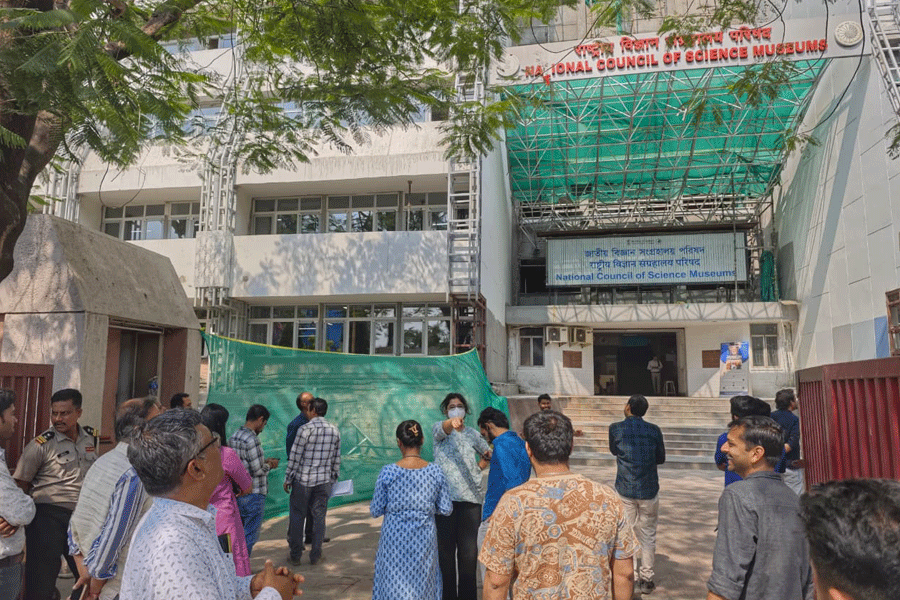Ravi Nischal has a Zen-like quality about him and that’s one of the first things that you notice. The cluster general manager-operations, Nepal, and general manager — Vivanta Kathmandu, welcomed us with the utmost warmth and made us feel at home during our brief stay in the capital of Nepal, that smile never leaving his face.
Ravi is originally from Lucknow, but is a “global citizen”, having grown up in Nigeria, studied in a school in Mussoorie, and with his profession taking him across the globe. The longest he’s lived in a place is Delhi, for a decade, and likes Goa. He loves to travel and explore different cultures and cuisines. In Nepal, he lives with his wife, and they have a 25-year-old daughter. Viva, 12, a rescued pet cat, is a part of the family too and she takes her name from the Vivanta brand. She’s also quite a traveller, having lived in India, Malaysia and now, Nepal.
t2 chatted with Ravi on his career, travel, Nepal and more.
You’ve had a long journey in the hospitality industry...
I have been in the industry since 1992. I did my hotel management from IHM, Lucknow. The initial years of my career were with the Meridien hotel, New Delhi. I joined The Taj group in 2004 at The Taj Mahal (Palace), Mumbai, and I spent about five years there. After stints in different Taj properties, I moved to Nepal as cluster general manager, and I am overseeing the three hotels that IHCL has here in Nepal — Vivanta Kathmandu, Vivanta Chitwan Bharatpur, and Meghauli Serai, Chitwan National Park, a Taj Safaris Lodge.
What would you say is the USP of Vivanta Kathmandu?
Vivanta Kathmandu, which opened in January 2019, is located on Jhamsikhel Road in the Kathmandu Valley. It is popular for its laid-back lifestyle. There are lots of cafes in and around. The Patan Durbar Square, which is one of the three durbar squares which is UNESCO listed, is in the vicinity of the hotel, barely a 10-minute drive away. That’s a huge pull for our guests, both for corporate travellers as well as for leisure travellers. We attract both segments as a result. While it is a hotel catering to corporate travellers, we also attract a lot of leisure travellers because of the location.
What were your long-term and short-term goals for the hotel?
When I came in, we were just moving out of Covid in 2023. So, we have seen our business stabilise over the last year-and-a-half. The number of tourists coming into Kathmandu as a destination had obviously taken a hit due to Covid. We felt it was important to expand too, which is why we opened Vivanta Chitwan Bharatpur, in March 2023, as an option for our guests as a gateway into central Nepal and Chitwan National Park. We also saw the potential for business travel in Bharatpur.
My role as the cluster general manager was purely to drive synergy between the three hotels and also look at opportunities for future growth for the brand within the country. Meghauli Serai opened in 2016.
We like to employ locals because our guests come to experience local hospitality and that gives them a sense of the place as well. We also like developing their skill sets so that they can grow in their careers to take on senior positions.
How have travel trends changed?
They have changed enormously over the years and I would say, more so, over the last 15-odd years, when development has taken centre stage in the country, both in terms of economic development as well as infrastructure. We have seen a huge change in the travel patterns of our guests, the growing middle class and their ability to spend, particularly in taking holidays and more frequent holidays, which was not the case earlier.
There is definitely higher disposable income today, with the growing middle class and people today are taking not just one but at least two-three holidays in a year, if we talk about the metro cities and even the Tier II-Tier III cities. There is also a change in infrastructure. Better roads and connectivity have made a huge difference because people can now travel seamlessly. Religious tourism has taken off. People are travelling because of that.
As a company as well, there’s a huge focus today for us for growth in cities, coming up with multiple brands across cities which have religious tourism. You talk about Ayodhya. We have got so many hotels coming up there. We have just signed up a 300+ room hotel in Ayodhya.
So, there is a lot of demand for travel and for luxury travel and in the upscale level as well and across segments, I would say. The Ginger (budget hotels) segment is growing because that is a lean luxe model. People are aspiring to stay in branded hotels and get a level of service they haven’t experienced before. That’s a value chain. We’ve got something for everyone.
Travel is no longer a luxury. People, post-Covid, have realised that it is important to connect with family and take time off and unwind. Wellness is centre stage today.
Which is where Meghauli Serai comes in, which is absolutely stunning!
The uniqueness about Meghauli is it helps you to totally unwind and unhinge yourself, which is why we see a lot of guests, even local Nepalese HNIs (High Net worth Individuals) travel to Chitwan National Park and particularly to Meghauli Serai. It is an oasis. We recommend a minimum of three days for a guest to experience Meghauli and take the benefits of what it has to offer. By benefits, I mean the ability to delink and unwind and become one with nature. We are located right at the edge of the forest of the national park and it’s so serene.
When people think of Nepal, they think of mountains and valleys. Meghauli Serai is in the Terai region and the whole topography is different with the foliage, the thick tropical jungle. Meghauli Serai is a jewel in our crown.
Nepal is also popular for destination weddings...
It is definitely popular for destination weddings because of its proximity to India and also easy access by road for those who want to get married in border cities and towns. Kathmandu is popular in the summer for destination weddings, when most parts of India are quite hot.
What more can be done in terms of tourism to put Nepal on the itinerary?
Nepal has huge potential, and it is only being realised now again. The government also realises that it is in a unique spot, and a lot can be done, both for the economy, by developing tourism. There is a focus also from the government to focus on tourism. What has changed in the last couple of years in Nepal is that we have more and more international brands coming into the country. We just had one hotel in Nepal in 2016, and we saw the potential and that’s why we came up with Vivanta in Kathmandu and Bharatpur. What’s unique about Nepal is that it’s diverse, culturally. The cuisines from north to south, east and west of Nepal are unique.
The government realises that they need to open up different parts of the country to tourism, which is why there is a lot of focus on trying to fix the infrastructure.
Pictures courtesy: Vivanta Kathmandu and by the author










